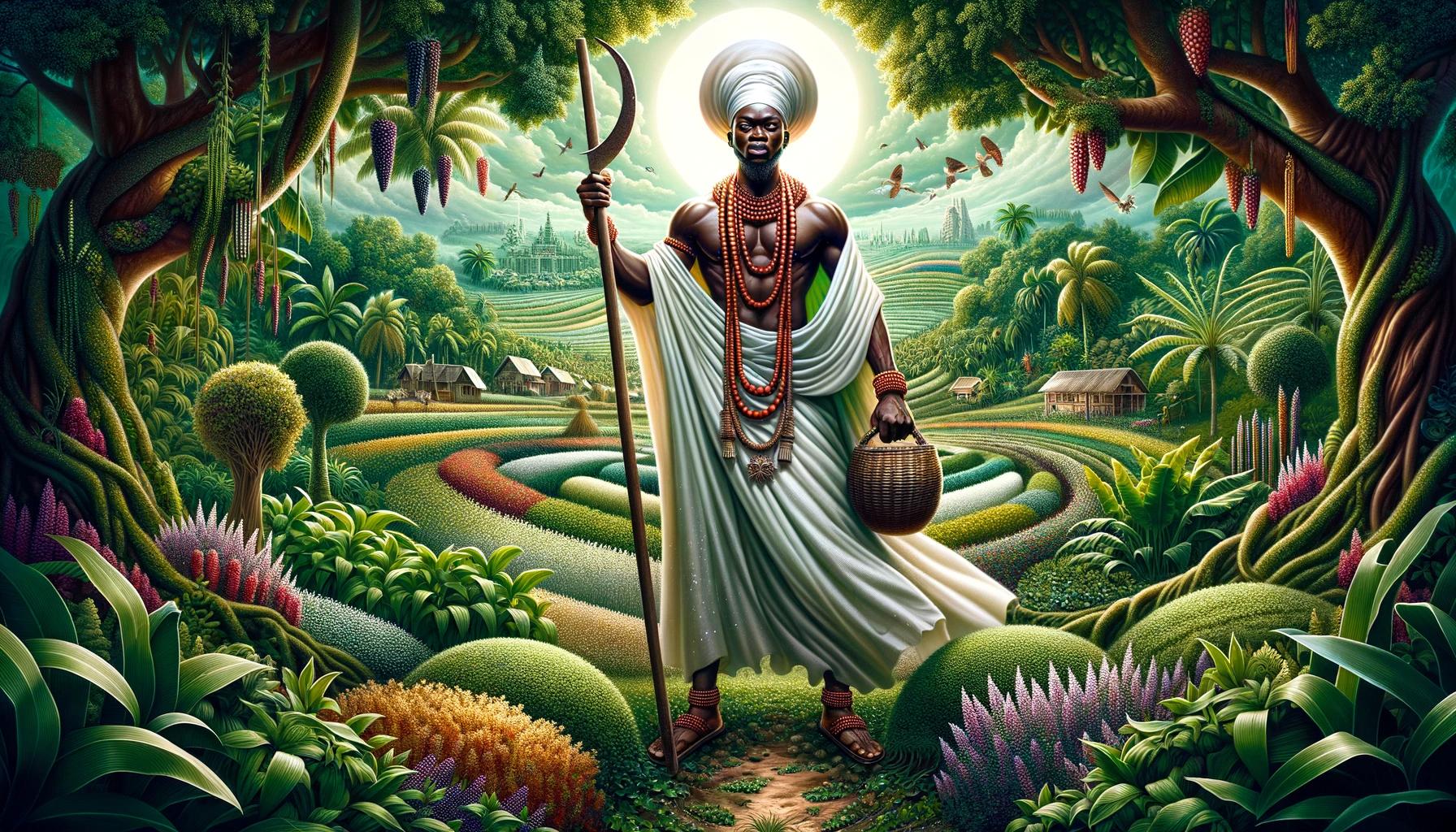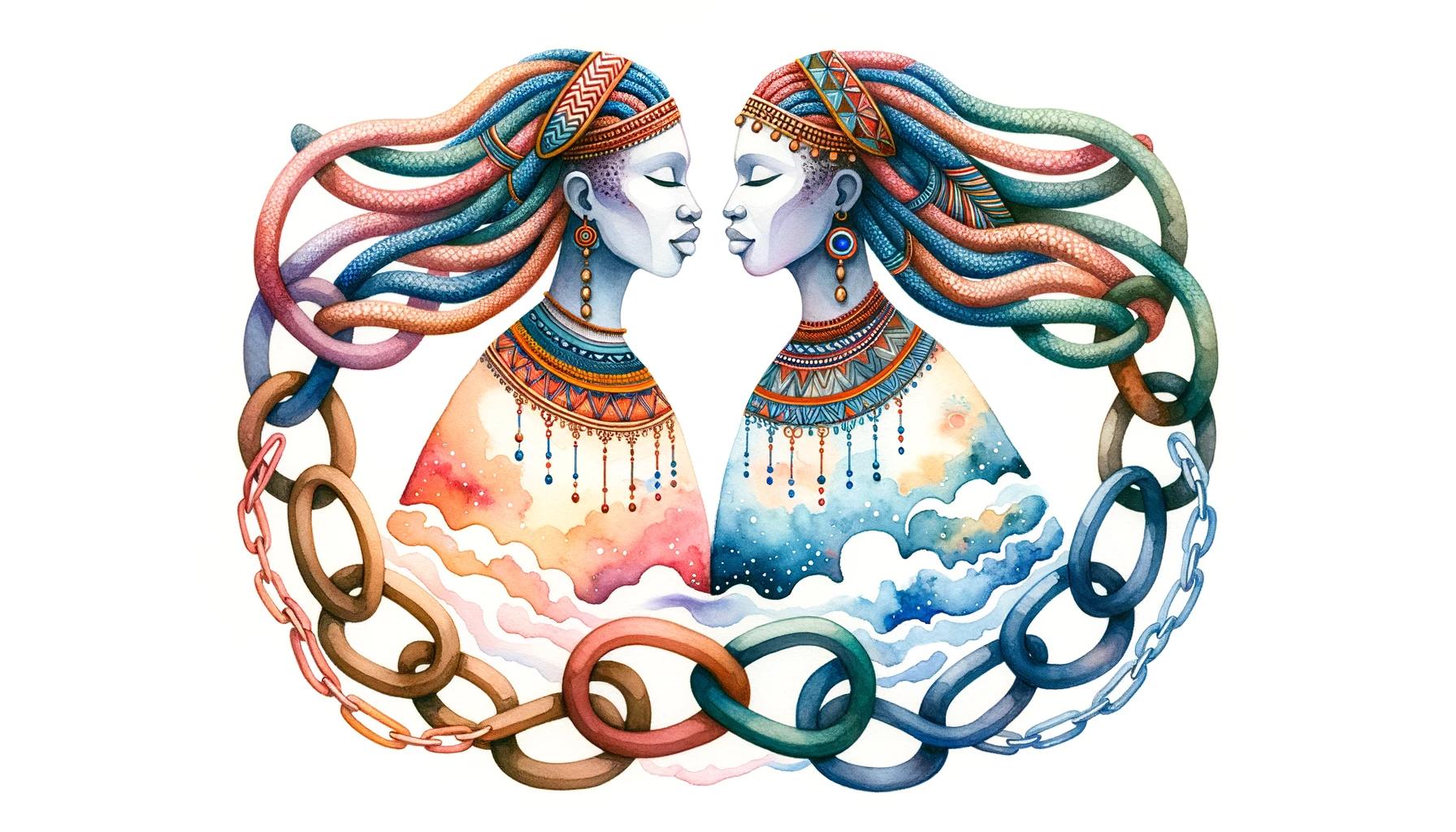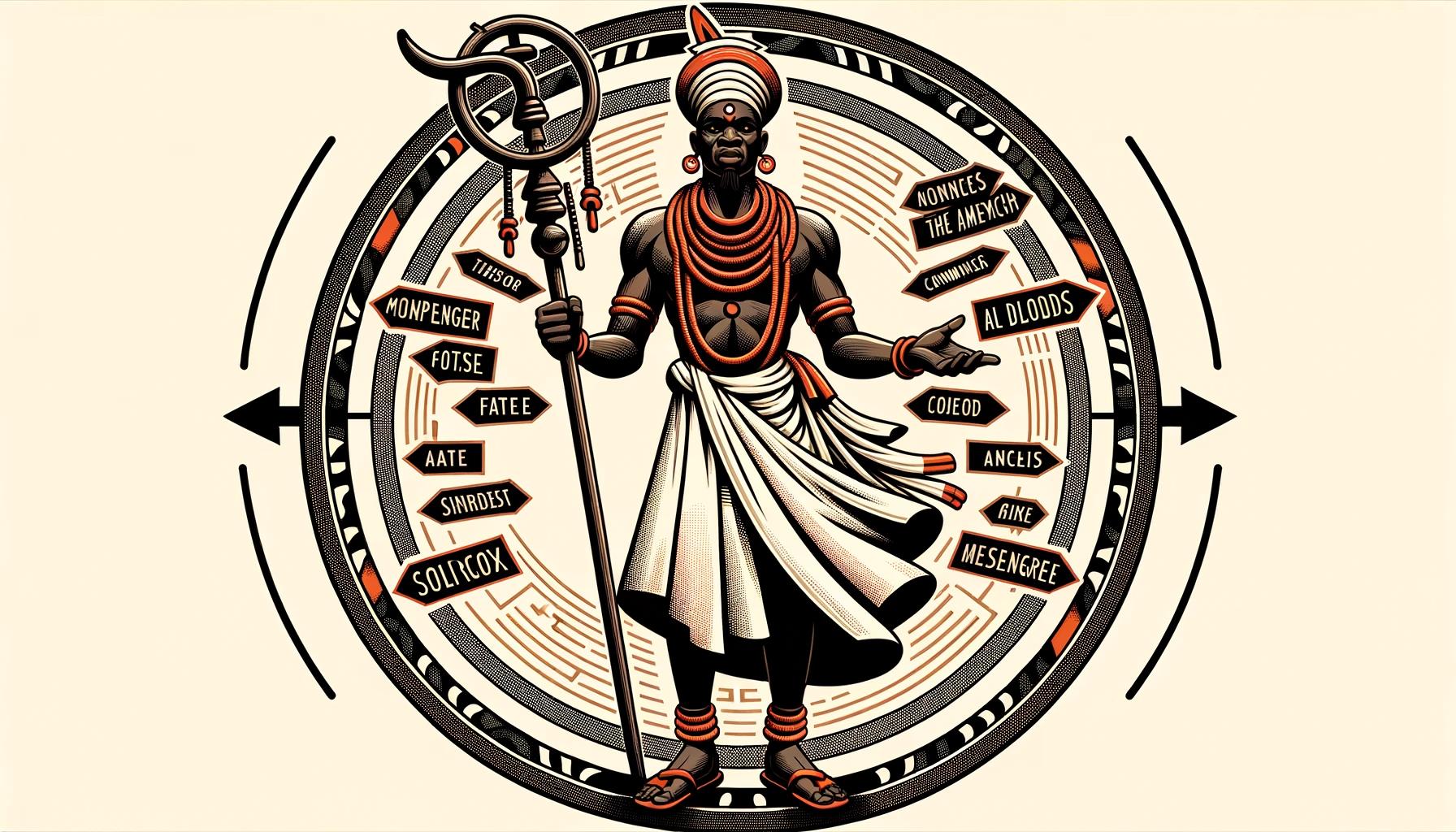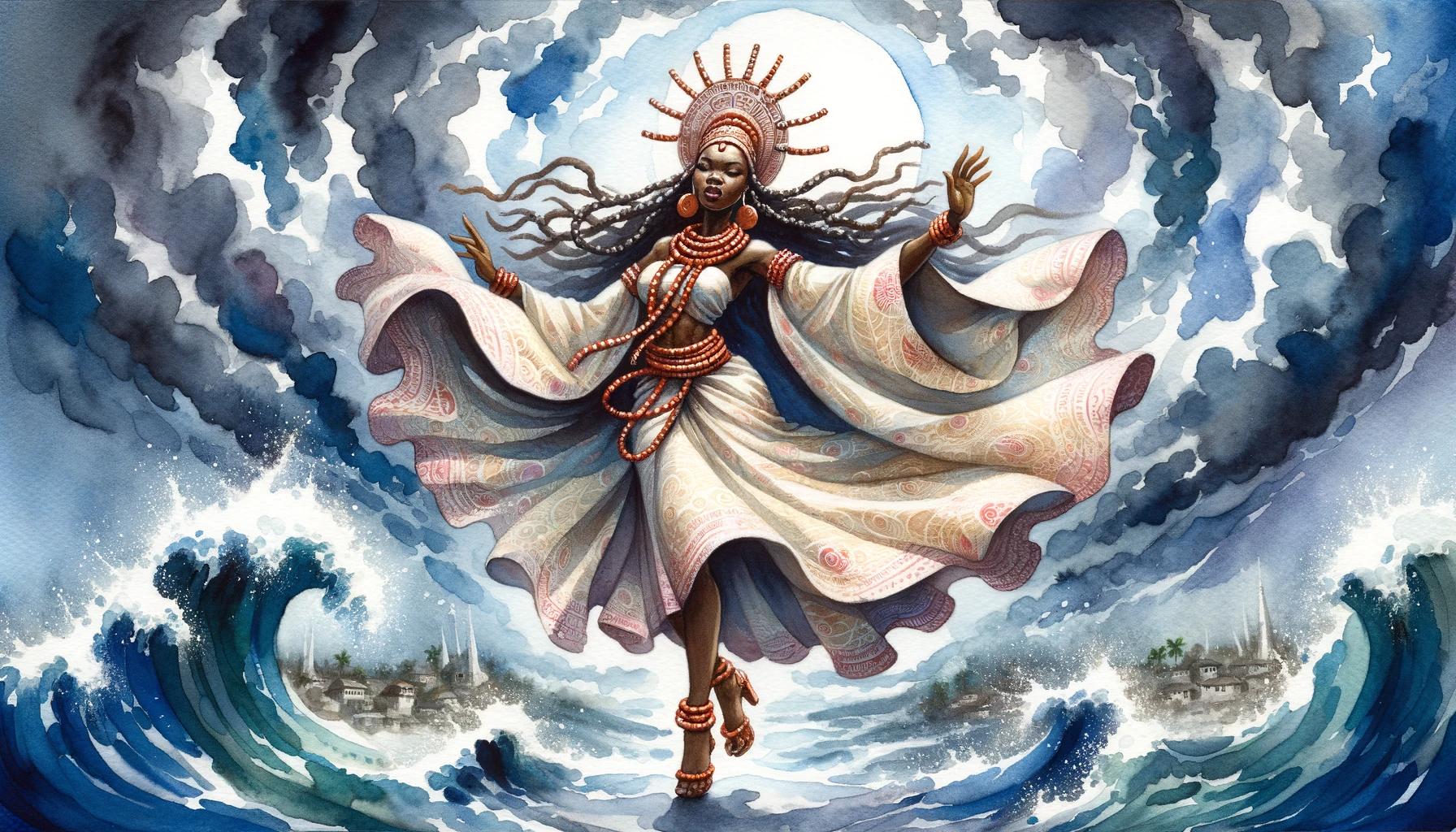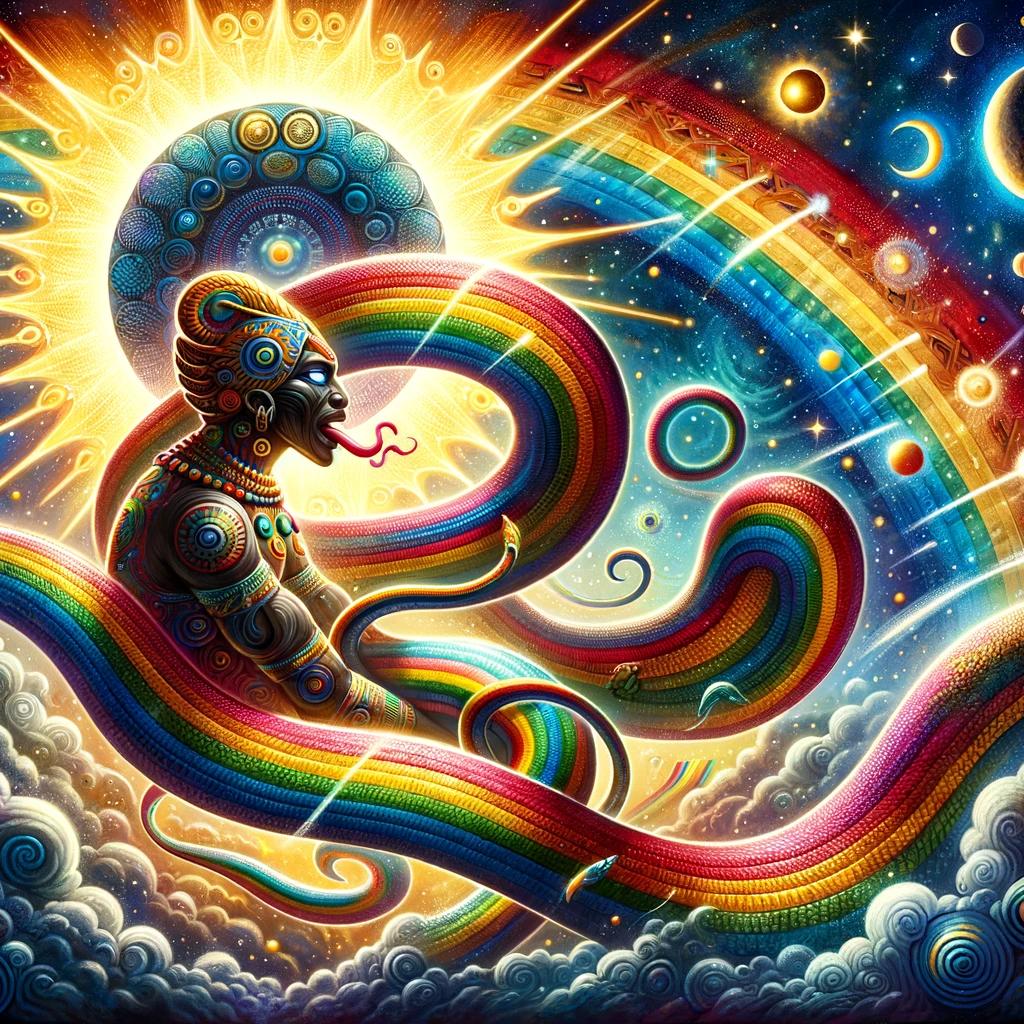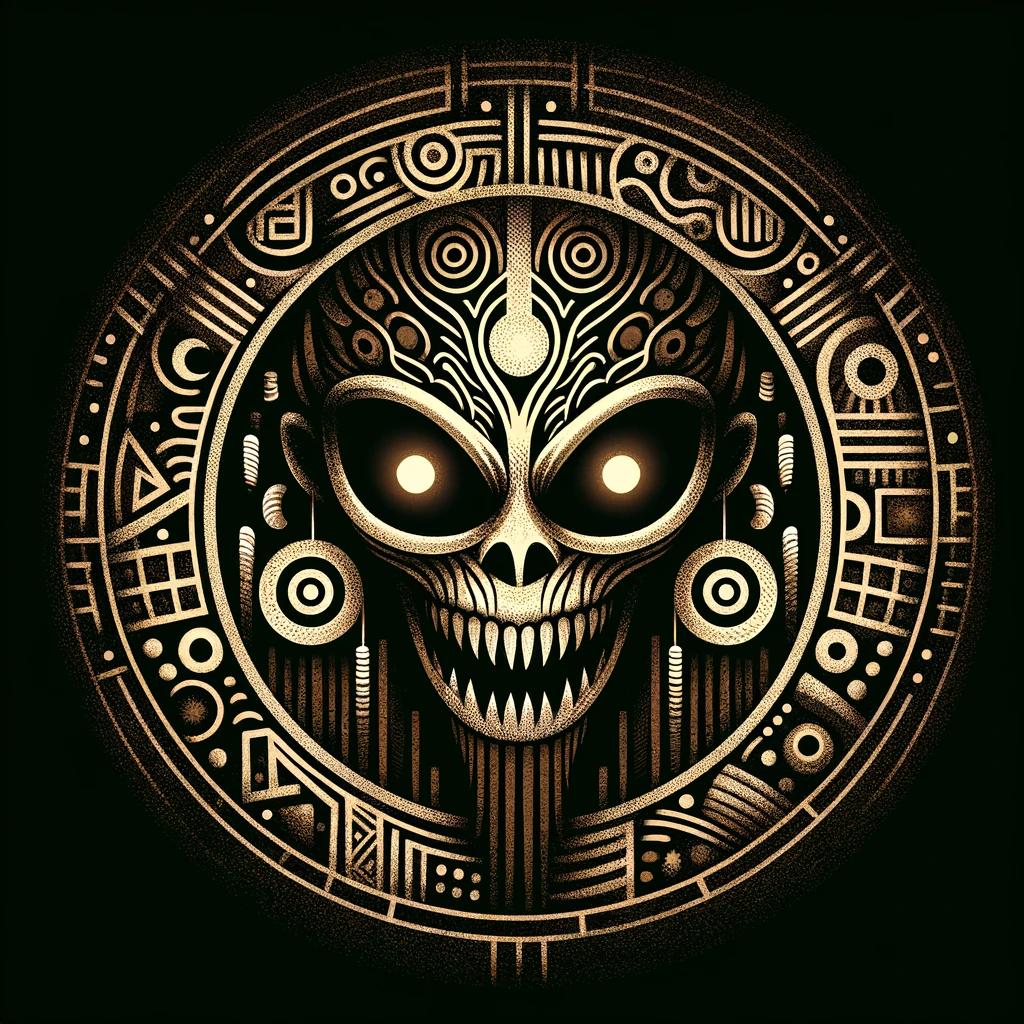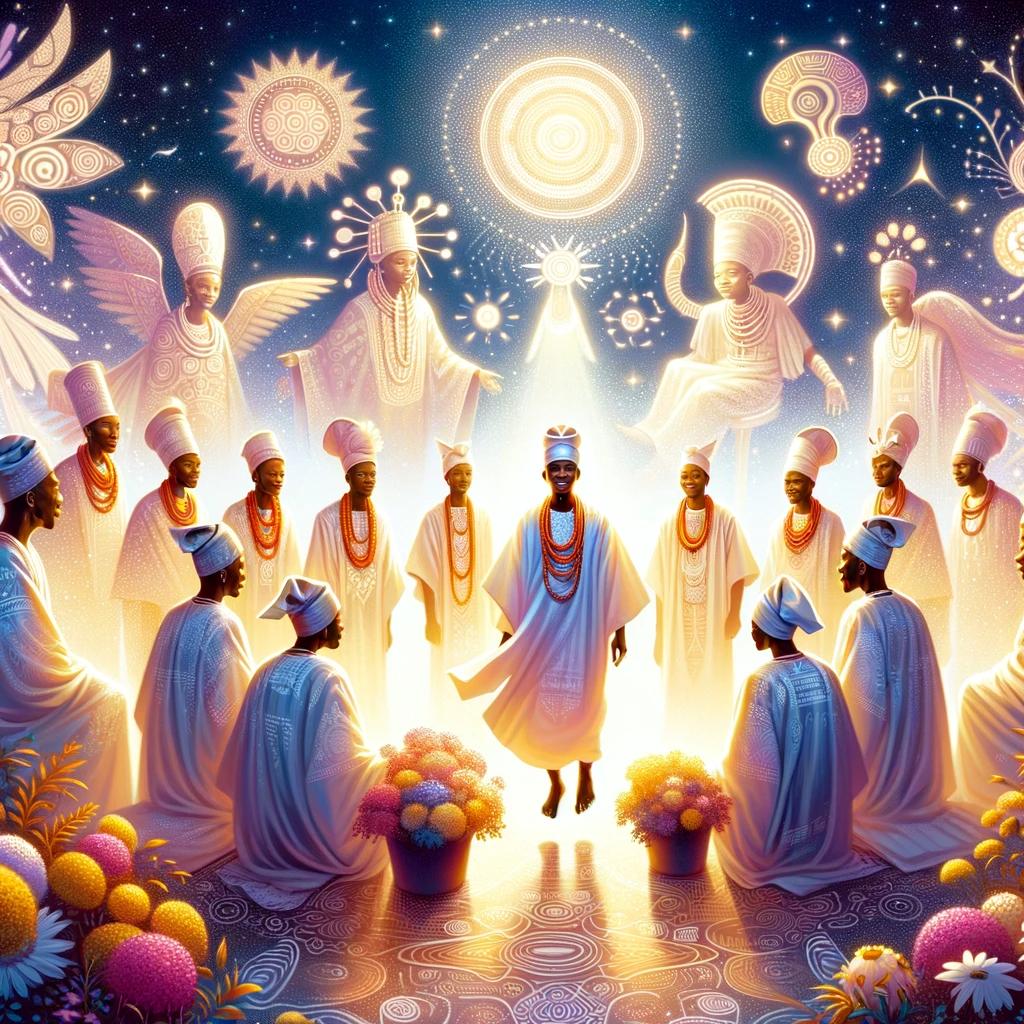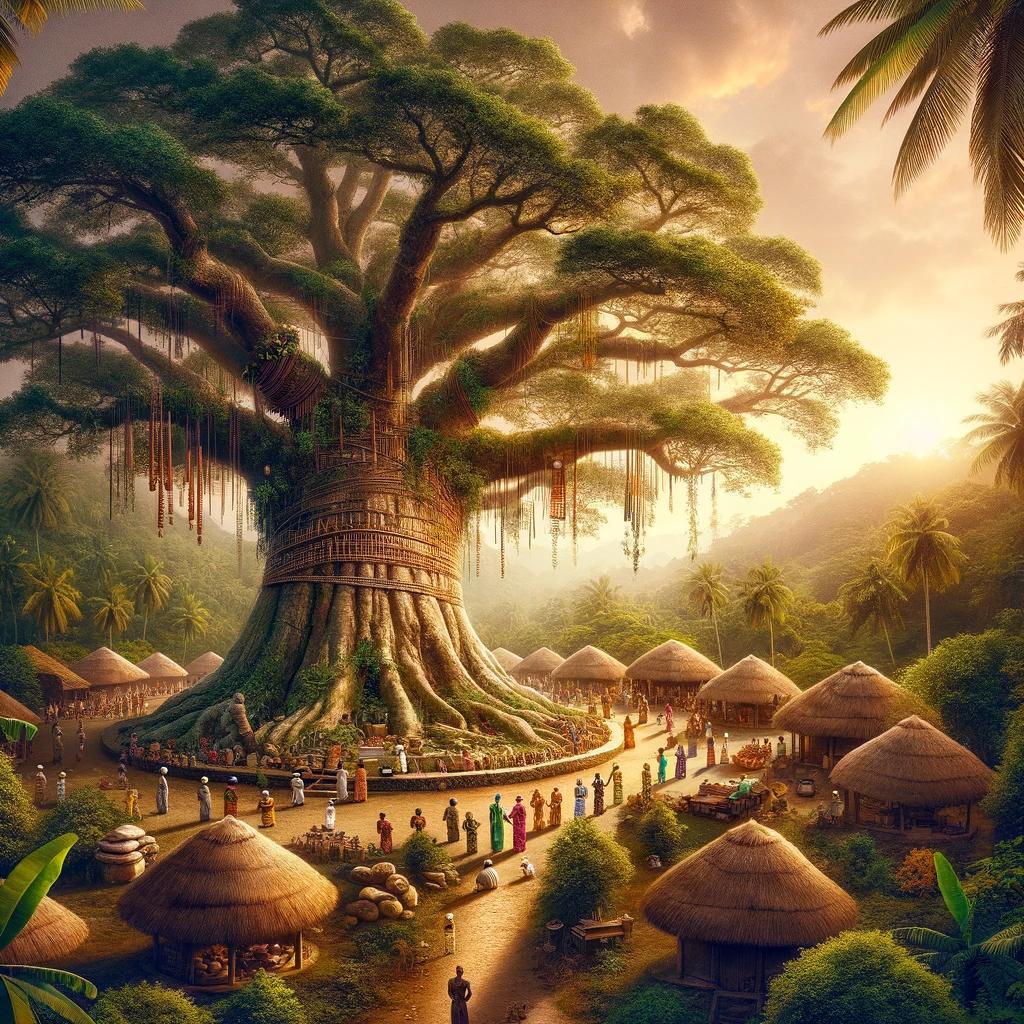Who is Olodumare God in Yoruba Belief: Exploring the Supreme Deity in Yoruba Religion
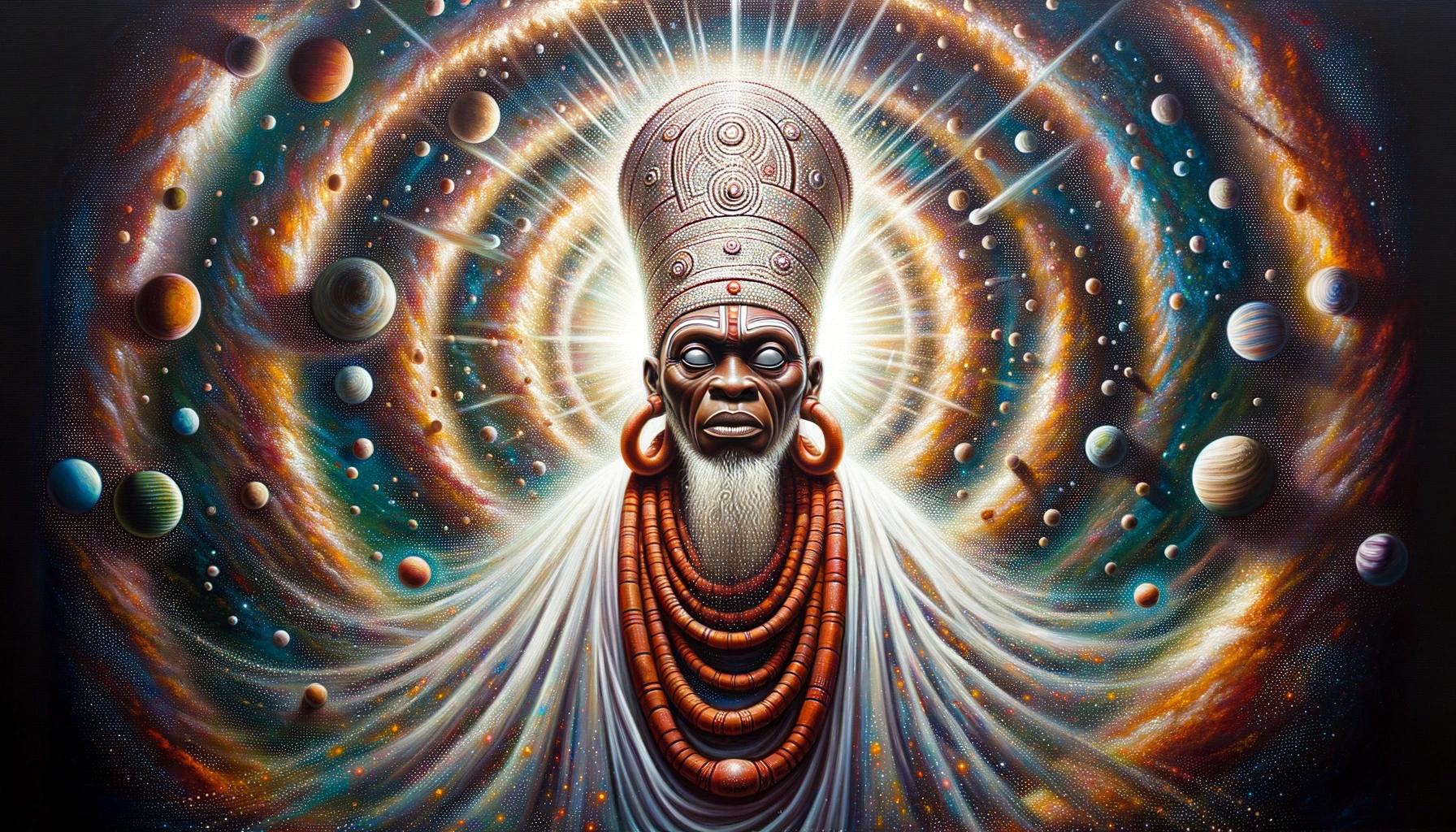
Understanding the Yoruba belief system involves delving into the intriguing world of Olodumare – the supreme deity in Yoruba religion. Who exactly is Olodumare, and what is their significance? This article seeks to explore these questions, as well as shed light on the relationship between Olodumare and the Yoruba people, the pantheon of orishas and divine spirits, and the creation story of Olodumare and the Earth.
Additionally, we will touch upon the impact of Yoruba belief today and examine comparisons with other African religions. Let’s embark on this enlightening journey into the realm of Olodumare and Yoruba belief.
Understanding the Yoruba Belief System
The Origin of the Yoruba Religion
The Yoruba religion has ancient roots that trace back to West Africa, specifically Nigeria. It emerged from the spiritual practices of the Yoruba people, one of the largest ethnic groups in the region.
The Yoruba religion is a polytheistic belief system, centering around the worship of numerous deities called orisha, with Olodumare as the supreme deity.
Key Concepts in Yoruba Belief
Yoruba belief is characterized by a deep reverence for nature, ancestors, and a strong connection between the spiritual and physical worlds. Key concepts in Yoruba belief include the concept of ashe, which represents spiritual energy and power, and the belief in the immortality of the soul.
Divination through methods like Ifa, a system of signs and symbols, is also integral to Yoruba belief, as it provides insights and guidance for navigating life’s challenges.
In summary, the Yoruba belief system has its origins in Nigeria and is centered around the worship of orishas, with Olodumare as the supreme deity.
It emphasizes the interconnectedness of spiritual and physical worlds, the importance of nature and ancestors, and the use of divination for guidance.
Exploring Olodumare: The Supreme Deity
The concept of Olodumare holds great significance in Yoruba belief, representing the supreme deity in their religious system. Let’s delve deeper into the nature and role of Olodumare within Yoruba belief.
Who is Olodumare?
Olodumare is the ultimate deity in Yoruba belief, often referred to as the creator and the lord of the heavens. While transcendent, Olodumare is also perceived as an engaged and social being, showing interest in the lives of individuals and can be invoked by them.
The Role of Olodumare in Yoruba Belief
Olodumare is central to Yoruba belief, serving as the originator and sustainer of all existence. As the ultimate power, Olodumare is responsible for the creation of the universe and everything within it.
Furthermore, Olodumare establishes the moral and ethical framework for human behavior.
Yoruba adherents attribute qualities such as wisdom and justice to Olodumare, considering the deity as the ultimate source of guidance and wisdom in their lives.
The moral codes established by Olodumare shape the conduct and actions of believers.
Olodumare’s Relationship with the Yoruba People
In Yoruba belief, Olodumare is regarded as a caring and involved deity who actively intervenes in the lives of individuals. Adherents can directly appeal to Olodumare for guidance, blessings, and protection, believing in a personal connection with this supreme being.
The relationship between Olodumare and the Yoruba people is based on reverence, gratitude, and a desire for divine favor. Rituals, prayers, and sacrifices are performed to honor and seek the favor of Olodumare, recognizing the deity’s influence in their lives and seeking harmony within the cosmic order established by Olodumare.
By exploring the origins, role, and relationship of Olodumare with the Yoruba people, we gain a deeper understanding of the fundamental beliefs and practices found within Yoruba religion.
The Yoruba Pantheon: Orisha and Divine Spirits
The Yoruba belief system encompasses a rich pantheon of orishas and divine spirits.
These entities play vital roles in Yoruba religious practices, offering guidance, protection, and assistance to believers. Let’s delve into an overview of the orisha, explore some of the major orishas in Yoruba belief, and understand the intricate relationship between Olodumare and the orisha.
Overview of the Orisha
The orisha are revered as deities or divine forces in Yoruba belief. They are intermediary figures, serving as the link between humans and the supreme deity, Olodumare. Each orisha represents unique attributes, virtues, and aspects of human existence.
They possess distinct personalities and may embody natural elements, such as rivers, forests, or thunder.
Worshipers often invoke specific orisha, seeking their guidance and blessings in various aspects of life, including health, prosperity, love, and fertility.
Rituals and ceremonies are dedicated to honoring and appeasing the orisha, acknowledging their power and influence in the lives of believers.
Major Orisha in Yoruba Belief
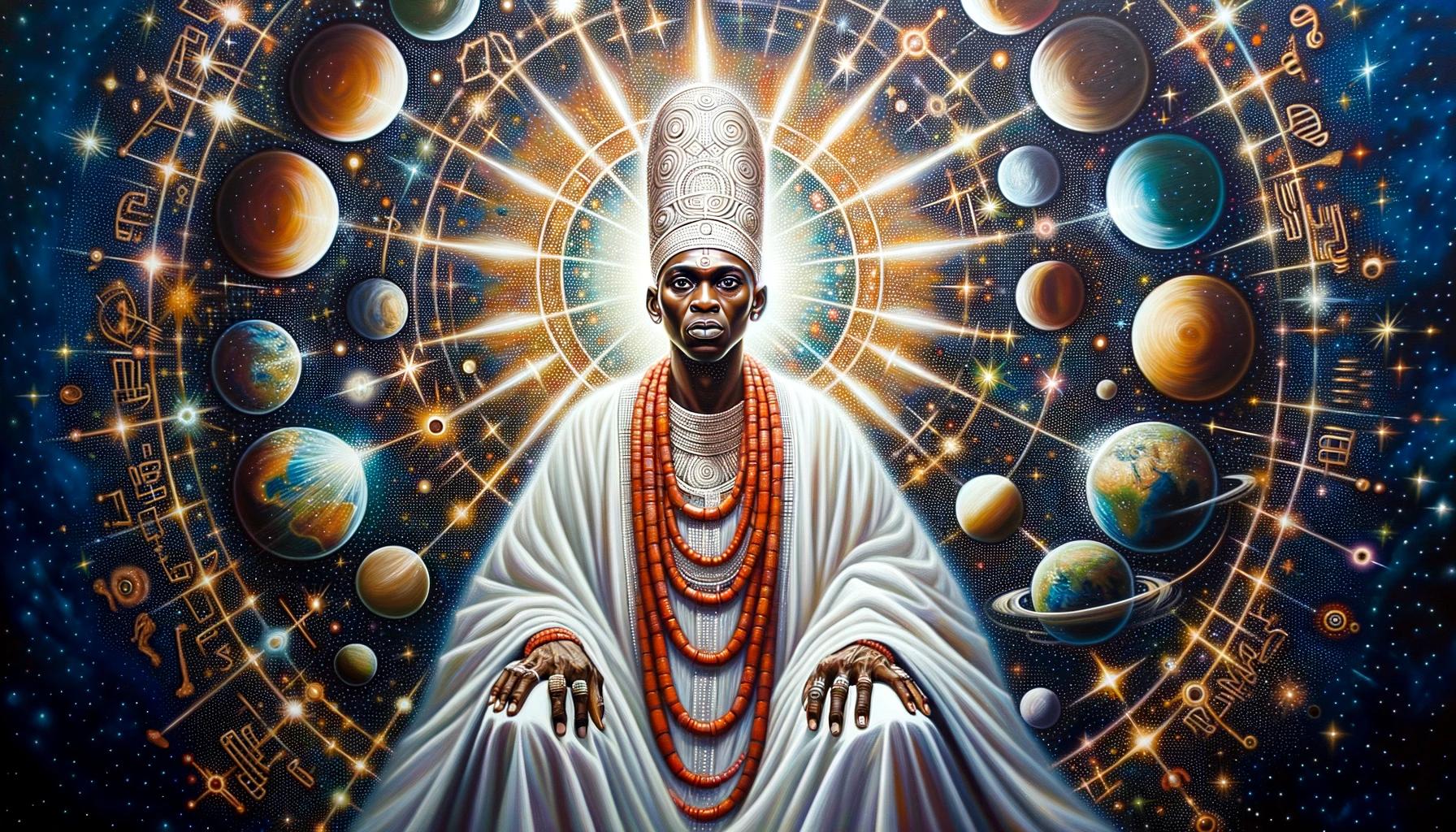
Within the Yoruba pantheon, certain orishas hold prominent positions and are venerated by a significant number of followers. These major orishas have distinct stories, characteristics, and responsibilities within the cosmic order of Yoruba belief.
Ogun, the orisha of iron and war, symbolizes strength, perseverance, and courage. He is often invoked for protection, success in battles, and overcoming obstacles.
Yemoja, the mother of waters, represents the nurturing and protective qualities of a mother.
She is associated with the oceans, rivers, and childbirth. Worshipers seek her blessings for fertility, safe voyages, and emotional healing.
Obatala, the creator orisha, is associated with purity, wisdom, and creativity.
Obatala is believed to have molded the first human beings from clay and holds the responsibility of governing moral and ethical conduct.
Relationship Between Olodumare and the Orisha
In Yoruba belief, there exists a close relationship between Olodumare, the supreme deity, and the orisha. Olodumare is considered the creator and source of all existence, while the orisha serve as emissaries and intercessors between humans and Olodumare.
Orisha derive their power and authority from Olodumare, acknowledging their subordinate roles in the divine hierarchy. They are conduits through which individuals can establish a connection with the supreme deity, seeking divine intervention and guidance in their lives.
While Olodumare remains transcendent and beyond direct human interaction, the orisha act as approachable figures, accessible to believers. They are believed to empathize with human experiences, offering support and assistance to those who seek their aid.
- In summary, the pantheon of orisha and divine spirits holds immense significance in Yoruba belief. They serve as intermediaries between humans and the supreme deity, Olodumare, offering guidance and assistance.
Major orishas like Ogun, Yemoja, and Obatala hold distinctive roles and are revered by followers. The relationship between Olodumare and the orisha establishes a connection between the divine and human realms, enabling believers to seek spiritual guidance and blessings.
The Creation Story of Olodumare and the Earth
One of the fundamental aspects of Yoruba belief is the creation story of Olodumare and the Earth.
This narrative encompasses Olodumare’s creation of the universe, his task to Obatala, and the role of the orishas in shaping the Earth.
Olodumare’s Creation of the Universe
According to Yoruba belief, Olodumare is the ultimate creator who fashioned the universe and all that it contains. He brought order to the cosmos, establishing the realms of the heavens, earth, and the supernatural.
Through his divine power, Olodumare meticulously crafted the intricate balance that governs the universe.
Olodumare’s Task to Obatala
Olodumare assigned a crucial role to Obatala, the archdivinity, in the creation of the Earth. Obatala was summoned by Olodumare to fashion solid land out of loose soil. Armed with a seashell filled with loose earth, and aided by a hen and a dove, Obatala molded the first landmass.
This act symbolized Olodumare entrusting the responsibility of creating the physical world to Obatala.
The Role of Orishas in the Creation of the Earth
The orishas, revered deities in Yoruba belief, played significant roles in the completion of the Earth’s formation. Olodumare equipped the land with primitive palm trees and other vegetation and sent sixteen already created individuals to populate the Earth.
Each orisha contributed their unique attributes and powers, shaping various aspects of human existence and bestowing blessings on the burgeoning world carved out by Olodumare and Obatala.
Influence of Olodumare and Yoruba Belief Today
The belief in Olodumare and Yoruba religion continues to hold significant influence in modern-day Nigeria and beyond.
This section examines the impact of Yoruba belief in both Nigeria and the diaspora, highlighting its enduring presence and cultural significance.
Yoruba Belief in Modern Nigeria
In present-day Nigeria, Yoruba belief remains a prominent aspect of the cultural landscape. Many individuals, especially in the southwestern region of the country, practice Yoruba religion alongside other faiths. The worship of Olodumare and the veneration of the orishas hold deep meaning and serve as a source of spiritual guidance for individuals and communities.
Yoruba religious festivals and rituals, such as the annual Odun Egungun and the Osun Osogbo festival, attract thousands of participants and spectators who come together to celebrate their ancestral traditions and express their devotion to Olodumare and the orishas.
Yoruba Diaspora and the Spread of Yoruba Religion
Beyond Nigeria, the Yoruba diaspora plays a vital role in spreading Yoruba religious practices and beliefs. As Yoruba people migrated to various parts of the world, including the United States, the Caribbean, Brazil, and other African countries, they carried their religious traditions with them.
Yoruba Religion in the United States
The Yoruba diaspora in the United States has established thriving religious communities and places of worship. These communities provide a space for Yoruba practitioners to gather, celebrate their faith, and pass down their cultural and religious heritage to future generations.
Yoruba religious practices in the U.S. often integrate with local customs and belief systems, creating unique expressions of Yoruba religion within an American context.
Yoruba Religion in the Caribbean and Brazil
The influence of Yoruba belief is particularly strong in the Caribbean, where the religion blends with local traditions and gives rise to various syncretic practices.
In countries like Cuba, Trinidad and Tobago, and Haiti, Yoruba religion has merged with Catholicism and other African spiritual traditions, resulting in belief systems such as Santeria and Vodou. Similarly, in Brazil, Yoruba traditions have merged with indigenous practices and European influences, resulting in Candomble and Umbanda.
Yoruba Religion in Other African Countries
Yoruba religion has also found a home in other African countries, where Yoruba diaspora communities have maintained their beliefs and rituals. This includes countries such as Benin, Togo, and Sierra Leone, where Yoruba practitioners uphold their religious practices while adapting to local cultural contexts.
Overall, the influence of Yoruba belief extends far beyond Nigeria, as it continues to thrive and evolve within diaspora communities across the globe. The resilience and adaptability of Yoruba religion demonstrate the enduring power and relevance of Olodumare and the rich tapestry of Yoruba spirituality.
Comparisons with Other African Religions
When exploring the rich tapestry of African religions, it is fascinating to draw comparisons between Yoruba belief and other belief systems on the continent. While each region and culture has its unique practices, there are noticeable similarities and distinct aspects that set Yoruba belief apart.
Similarities between Yoruba Belief and Other African Religions
Yoruba belief shares several commonalities with other African religions:
- Concept of a Supreme Being: Similar to many African religions, Yoruba belief acknowledges the existence of a supreme deity. Olodumare, also known as Olorun, holds a similar position to other supreme beings in African belief systems.
- Importance of Ancestor Worship: Ancestor veneration is a significant aspect of Yoruba belief, and it is also present in other African religions.
Honouring and seeking guidance from ancestors is a shared practice that illustrates the strong connection between the living and the deceased.
- Oral Tradition and Rituals: Like many African religions, Yoruba belief relies on oral tradition to preserve its teachings and rituals.
Storytelling, proverbs, and ritual practices passed down through generations help maintain the integrity and authenticity of Yoruba belief.
Unique Aspects of Yoruba Belief Compared to Other African Religions
While Yoruba belief shares similarities with other African religions, it also boasts distinctive characteristics that set it apart:
- Orisha Pantheon: The extensive pantheon of orishas, comprising several gods and divine spirits in Yoruba belief, sets it apart from many other African religions.
The intricate network of orishas with their specific domains and personalities contributes to the complex religious landscape of Yoruba belief.
- Concept of Dual Divinities: Yoruba belief recognizes the concept of “twins” or “double gods” known as Ibeji. This belief in dual divinities reflects a unique aspect of Yoruba religious practices that may not be as prevalent in other African religions.
- Influence on the African Diaspora: Yoruba belief, through the transatlantic slave trade, has had a profound impact on the development of Afro-Caribbean and Afro-American religions.
Practices such as Santería, Candomblé, and Vodou incorporate elements of Yoruba belief, adapted to suit different cultural contexts.
Exploring the similarities and differences between Yoruba belief and other African religions enhances our understanding of the diversity and interconnectedness of spiritual practices across the continent.
Frequently Asked Questions about Olodumare and Yoruba Belief
What is the significance of Olodumare in Yoruba Belief?
In Yoruba belief, Olodumare holds immense significance as the supreme deity and creator. Considered the lord of the sky, Olodumare is revered as the ultimate source of all existence. They are regarded as a social being who is interested in the lives of individuals and can be invoked at any time.
Olodumare’s power and influence extend over the entire Yoruba pantheon and the everyday lives of its followers.
Can Olodumare be invoked by individuals?
Yes, individuals in Yoruba belief have the ability to invoke Olodumare. Whether in times of celebration, gratitude, or distress, followers can communicate with Olodumare through prayers and rituals. This connection allows individuals to seek guidance, blessings, and protection from the supreme deity of Yoruba religion.
How does Olodumare interact with other deities in Yoruba Belief?
In Yoruba belief, Olodumare is the ultimate authority over the orishas and divine spirits that make up the Yoruba pantheon. Olodumare has a hierarchical relationship with these deities, overseeing their actions and decision-making.
The orishas serve as intermediary figures in connecting humans to Olodumare, acting as channels for communication and carrying out Olodumare’s divine will in the world.
While the orishas possess specific domains and responsibilities, Olodumare remains the highest power and ultimate source of authority.
They govern the celestial realm and maintain order and balance within the Yoruba cosmology and belief system.
As we explore the intricacies of Olodumare’s role and interactions in Yoruba belief, we gain a deeper understanding of the spiritual connections and divine hierarchy within this rich and vibrant religious tradition.
.











